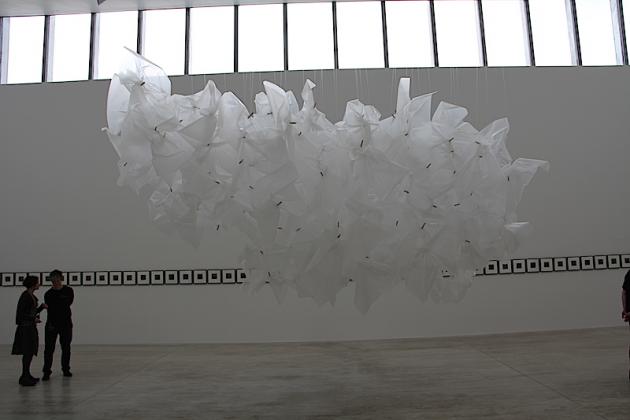At last the conversation about arts and cultural policy is getting serious, the RSA (Royal Society for the encouragement of Arts) is going to take it one step further. For many years the RSA have tried to encourage a more grown up and rigorous conversation about arts and cultural policy. It’s not that there hasn’t been good work in this area, valuable research, important policy initiatives, passionate debates but yet, added together, it hasn’t added up to a discourse worthy of the importance of arts and creativity to our nation and our lives.
Large and powerful swathes of Whitehall continued to treat the sector as peripheral, confusing and slightly flaky while the sector itself has been slow in developing a case that would stand up next to arguments for other, more obviously essential, forms of public investment. But in recent years, especially as austerity has bitten, there has been a tangible change. A number of bodies – for example, NESTA, Arts Council England, Creative Industries Council What Next – have contributed to a more thoughtful, evidence-based and realistic debate.
Building on this it was great to see the positive response to the excellent Warwick Commission on the Future of Cultural Value which was published on Tuesday. The Commission report is comprehensive, authoritative, impassioned and clever. It has clearly benefitted from the chairing of the RSA’s own Vikki Heywood. The Warwick team have crafted a balanced document which, as well as making the case for arts and culture to be taken more seriously as a strategic resource, has also bitten the bullet of challenging the sector itself in key areas like impact and diversity.
All of this fits very well with an initiative that has been developing with some support from Arts Council England. The ‘arts and culture contract’ echoes the Warwick Commission in urging a more ambitious approach to arts and culture and laying an equal responsibility on Government and the cultural and creative sector to reach for this ambition. Although it is this – the ambition and the reciprocity – which are the critical elements, we have drafted a number of broad ‘asks’ and ‘offers’ (although some offers are part ask and some asks part offer).
In terms of content the RSA claim no originality. The modest task has been to gather together existing ideas, especially that they knew was likely to emerge from the Warwick Commission, and start to talk to some of the key bodies working in the sector about lending their support to the initiative. Here is a first iteration of the compact to get some initial response. Then on March 11th, the RSA, we will be holding an event with Arts Council England and other partners to discuss a fuller version. If the response is good the RSA will then encourage campaigners – especially local What Next groups – to use and adapt the compact as the basis for making sure arts and culture features in the national and local debates leading up to the general election.
The bigger goal – which lies many steps ahead – is that an incoming Government and key art and cultural agencies might sign up to the contract in the summer thus providing a basis for a more ambitious relationship and strategy to run across the term of the next administration.
A draft ‘contract’ between government and the arts & cultural sector
The ‘ask’
Government to produce a comprehensive national strategy for the creative and cultural industries
A cross Whitehall review of the contribution arts and culture makes to broader public services goals
A new expectation placed on schools to guarantee arts and cultural engagement by all pupils
A comprehensive approach to skills and talent in the creative and cultural industries
A push to place arts and culture at the heart of local place making and regeneration strategies
As part of a broad commitment to digital enterprise, backing for a new digital cultural offer bringing together all publicly subsidised cultural assets and mapping local arts and cultural resources
Commitment to a new national and city-level global cultural diplomacy strategy
A commitment to sustain and expand the role of tax breaks in fostering the production of world-class content, IP and export revenues
The ‘offer’
A commitment to work with Government to apply a comprehensive and robust evidence and reporting framework for all arts and cultural activities supported by public investment
Recipients of public funding to commit to a step change in the work produced for diverse audiences and to create more opportunities for diverse talent across the publicly funded sector
A commitment to a measurable increase in the alternative income generation by arts and cultural organisations
A commitment to develop a unified, coherent and more equitable approach to recruitment and training in the arts and cultural sector
With a particular focus on the use of pupil premium NPOs, major partner museums, music education hubs and bridge organisations to combine forces to offer high-quality, relevant and affordable arts and cultural experiences to schools
A renewed commitment from publicly funded arts and cultural organisations to explore new forms of partnership and collaboration including with the commercial and voluntary sector.
What Next? to work with partners across the cultural and creative industries to frame a public contract exploring how the cultural and creative ecosystem can enhance the arts and cultural offer, and encourage new forms of cultural and civic expression across the whole country
RSA Event Toward a new contract for arts & culture
Wednesday 11 March 2015 from 15.30-17.00
RSA, 8 John Adam Street, London WC2N
Register Here
Comments use the button below

